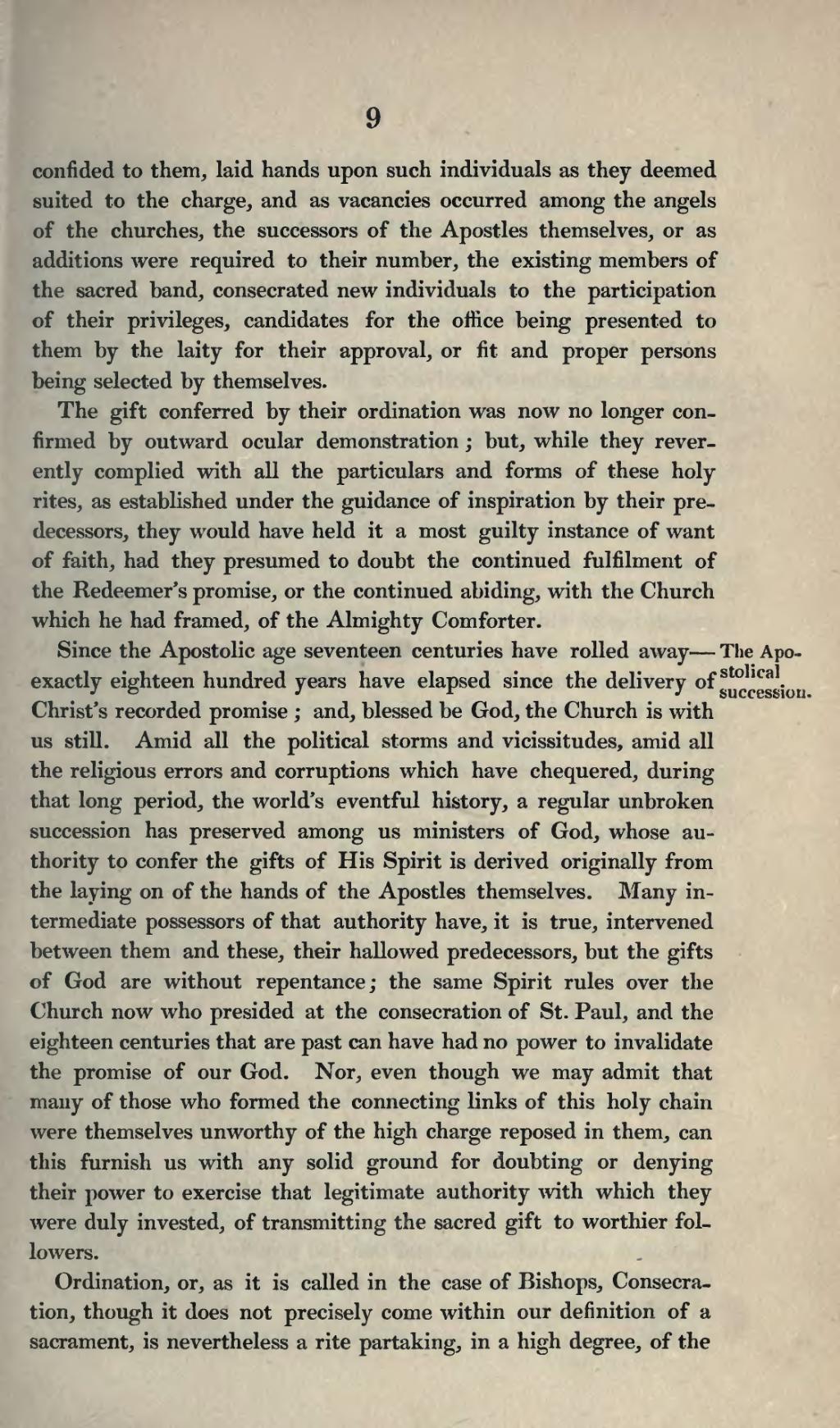confided to them, laid hands upon such individuals as they deemed suited to the charge, and as vacancies occurred among the angels of the churches, the successors of the Apostles themselves, or as additions were required to their number, the existing members of the sacred band, consecrated new individuals to the participation of their privileges, candidates for the office being presented to them by the laity for their approval, or fit and proper persons being selected by themselves.
The gift conferred by their ordination was now no longer confirmed by outward ocular demonstration; but, while they reverently complied with all the particulars and forms of these holy rites, as established under the guidance of inspiration by their predecessors, they would have held it a most guilty instance of want of faith, had they presumed to doubt the continued fulfilment of the Redeemer's promise, or the continued abiding, with the Church which he had framed, of the Almighty Comforter.
The Apostolical succession.Since the Apostolic age seventeen centuries have rolled away— exactly eighteen hundred years have elapsed since the delivery of Christ's recorded promise; and, blessed be God, the Church is with us still. Amid all the political storms and vicissitudes, amid all the religious errors and corruptions which have chequered, during that long period, the world's eventful history, a regular unbroken succession has preserved among us ministers of God, whose authority to confer the gifts of His Spirit is derived originally from the laying on of the hands of the Apostles themselves. Many intermediate possessors of that authority have, it is true, intervened between them and these, their hallowed predecessors, but the gifts of God are without repentance; the same Spirit rules over the Church now who presided at the consecration of St. Paul, and the eighteen centuries that are past can have had no power to invalidate the promise of our God. Nor, even though we may admit that many of those who formed the connecting links of this holy chain were themselves unworthy of the high charge reposed in them, can this furnish us with any solid ground for doubting or denying their power to exercise that legitimate authority with which they were duly invested, of transmitting the sacred gift to worthier followers.
Ordination, or, as it is called in the case of Bishops, Consecration, though it does not precisely come within our definition of a sacrament, is nevertheless a rite partaking, in a high degree, of the